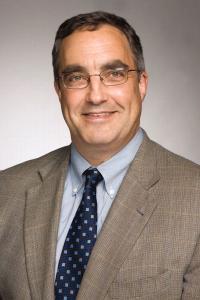Andrew R. Marks, MD
- Clyde '56 and Helen Wu Professor of Molecular Cardiology (in Medicine)
- Professor of Biomedical Engineering
- Professor of Physiology and Cellular Biophysics
On the web

Overview
Andrew R. Marks, MD, received his undergraduate degree from Amherst College where he was the first student in the history of the college to graduate with honors in two subjects (Biology and English), and his MD from Harvard Medical School in 1980. Following an internship and residency in internal medicine at the Massachusetts General Hospital (MGH), he was a post-doctoral fellow in molecular genetics at Harvard Medical School, and then a clinical cardiology fellow at the MGH.
In 1987, Dr. Marks joined the Cardiology Division at the Brigham and Women's Hospital. He then moved back to his hometown, New York, in 1990, as an Assistant Professor of Molecular Biology and Medicine at Mount Sinai School of Medicine. In 1995, he was named the Fishberg Professor of Medicine at Mount Sinai, and in 1997, he moved to Columbia University College of Physicians & Surgeons as Director of the Center for Molecular Cardiology and the Clyde and Helen Wu Professor of Medicine and Pharmacology. In 2003, Dr. Marks was appointed Chair and Professor of the Physiology and Cellular Biophysics Department at Columbia University.
Academic Appointments
- Clyde '56 and Helen Wu Professor of Molecular Cardiology (in Medicine)
- Professor of Biomedical Engineering
- Professor of Physiology and Cellular Biophysics
Administrative Titles
- Chair, Physiology and Cellular Biophysics
Credentials & Experience
Education & Training
- BA, Biology and English, with Honors , Amherst College
- MD, Harvard Medical School
- Internship: Internal Medicine, Massachusetts General Hospital (MGH)
- Residency: Internal Medicine, Massachusetts General Hospital (MGH)
- Fellowship: Molecular Genetics, Harvard Medical School
- Fellowship: Clinical Cardiology, Massachusetts General Hospital (MGH)
Committees, Societies, Councils
- 2005: Fellow, American Academy of Arts and Sciences
- 2005: Member, National Academy of Sciences
- 2004: Member, Institute of Medicine, National Academy of Sciences
- 1999 Association of American Physicians (AAP)
- 1995 American Society of Clinical Investigation (ASCI)
Editorial Boards
- 2002 - 2007: Editor-in-Chief, Journal of Clinical Investigation
Honors & Awards
- 2018: Naranjan Dhalla Award, Innovative Investigators in Cardiovascular Sciences, International Academy of Cardiovascular Sciences
- 2016: Doctor of Science Honoris Causa from the University of Montpellier
- 2016: Glorney-Raisbeck Award from the NY Academy of Medicine
- 2015: Ulf von Euler lecturer Karolinska Institute
- 2011: Ellison Medical Foundation Senior Scholar in Aging Award
- 2011: Robert J. and Claire Pasarow Award in Cardiovascular Disease Research
- 2010: Stanley J. Korsmeyer Award, ASCI
- 2009: Doctor of Science Honoris Causa from Amherst College
- 2005: Basic Research Prize, AHA
Research
Molecular biology of intracellular calcium release channels and their relevance to human disease.
A major focus of the laboratory is the study of mechanisms that regulate muscle contraction. In particular we use a variety of techniques including molecular biology, biophysics, cell biology, imaging (Live5 Zeiss Confocal), and structural biology to gain better understandings of the regulation of calcium release channels on the sarcoplasmic reticulum that control excitation-contraction (EC) coupling in cardiac and skeletal muscle. There are opportunities for graduate students and postdoctoral fellows to head their own projects using any of the various techniques that we employ to examine the regulation of calcium signaling and muscle function in normal and diseased states.
In addition the laboratory has developed numerous genetic mouse models (primarily knock-ins and knock-outs) that are available to address specific questions concerning the regulation of key signaling pathways that control muscle contraction - in both cardiac and skeletal systems. Much of the work in the laboratory is "translational" in that it leads directly to understanding the molecular basis of human diseases including heart failure and sudden cardiac death.
In addition, novel therapeutic approaches are being tested including those that fix the "leak" in the RyR2 calcium release channel that causes heart failure and sudden cardiac death. In addition, there are projects focusing on gaining better understandings of cardiac muscle growth and excitability, T cell and B cell activation, as well as vascular smooth muscle proliferation. The latter project has lead directly to the development of the drug eluting stents that are currently used for patients with coronary artery disease.
For a complete list of publications, please visit PubMed.gov